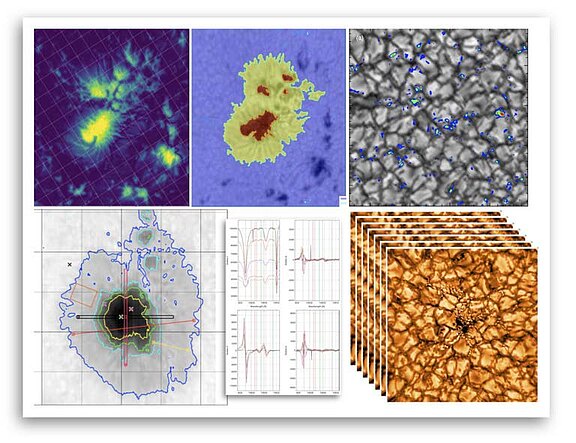Leibniz Institute for Solar Physics (KIS), a member of the Leibniz Association, located in Freiburg, Germany, has launched the Science Data Centre (SDC) to host large data volumes from the ground-based solar telescopes.
The first phase of the SDC is dedicated to the data generated by the German solar observatory on Tenerife, Spain, where KIS operates two German solar telescopes: Europe’s largest solar telescope GREGOR and Vacuum Tower Telescope (VTT), in cooperation with its partners Max-Planck Institute for Solar System Research (MPS, Göttingen), Leibniz Institute for Astrophysics (AIP, Potsdam) and Institute for Astrophysics on Canary Islands (IAC, Spain).
The Sun is the closest star to the Earth, and it is the only star we can study in unprecedented detail. Solar radiation and magnetic activity affect the near-Earth environment (space weather), terrestrial atmosphere and climate, as well as living beings, human civilization and technology. Understanding the Sun and forecasting its magnetic activity are the main goals of solar physics research. The Sun is therefore continuously imaged with various high-resolution instruments in space and on the ground – in the optical, ultraviolet, X-ray, radio, microwave and infrared parts of the spectrum. In addition to photons, various particles are monitored in the solar emission as they bombard the Earth and near space. This produces an enormous amount of data (many peta-Bytes per year, PB/yr) which offer new opportunities for knowledge discoveries.
Currently, the SDC at KIS manages and disseminates solar data to the solar physics community in Europe and beyond, as well as to a broader scientific community for Sun-related studies, such as astrophysics, particle physics, climate research, etc. The SDC is funded by the German Scientific Conference (GWK) with contributions from the Baden-Württemberg Ministry for Science, Research and Art (MWK) and Federal Ministry for Education and Research (BMBF), 1.4 million Euro per year for personnel and equipment starting from January 2021. The SDC team consisting of scientists and IT specialists is led by the Principle Investigator Prof. Dr. Svetlana Berdyugina, SDC Head Dr. Peter Caligari, SDC Project Scientist Dr. Nazaret Bello Gonzalez and SDC Project Manager Petri Kehusmaa.
The KIS and SDC are cooperation partners within European and German consortia addressing issues of Big Data in science, under the European Commission Initiative Open Science Cloud (EOSC), in particular the European Science Cluster of Astronomy and Particle physics ESFRI research infrastructure (ESCAPE, Horizon2020), Particles, Universe, Nuclei and Hadrons for the National Research Data Infrastructure (PUNCH4NFDI, GWK & DFG, Germany), Integrating High Resolution Solar Physics (SOLARNET, Horizon2020). KIS is also a partner of the Albert-Ludwig University Freiburg, and thus the SDC will allow for new cooperation in teaching and research in the area of computer science, artificial intelligence, informatics, etc.
The long-term plan includes further development of the service platform for solar data from other large solar telescopes. New collaborations are planned with the National Solar Observatory (NSO, USA) operating the world-largest solar telescope DKIST, and Steinbuch Computing Center (SCC) at the Karlsruhe Institute of Technology (KIT). Other future facilities include also the European Solar Telescope (EST), the ESFRI infrastructure, fostered by the European solar physics community. Furthermore, research in data science, Big Data analytics, artificial intelligence, etc., will become possible by consolidating data on one platform of SDC.
Further information on the SDC, its products and tools can be found at https://sdc.leibniz-kis.de/en/
Contact:
Prof. Dr. Svetlana Berdyugina:
Dr. Peter Caligari:
